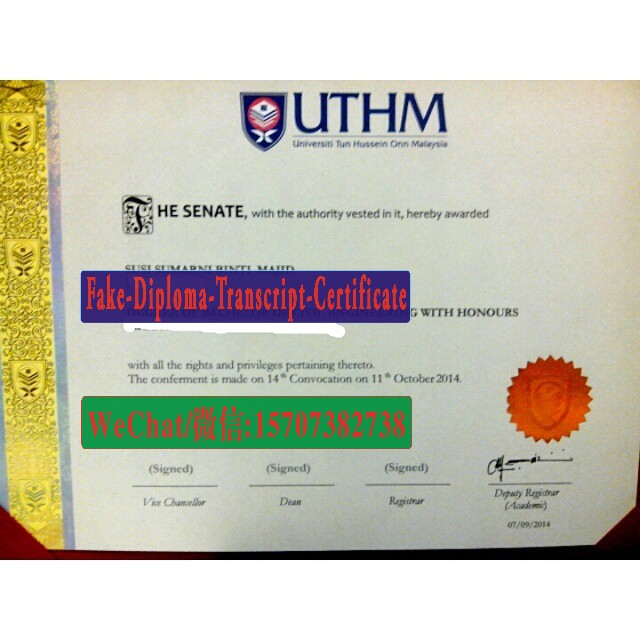Fake Universiti Tun Hussein Onn Malaysia Diploma Transcript
Have you ever wondered about the authenticity of a diploma? With the growing demand for higher education qualifications, the issue of fake diplomas has become a concerning problem. One particular institution that has been embroiled in controversy in recent years is the Universiti Tun Hussein Onn Malaysia.
The Controversy
The Universiti Tun Hussein Onn Malaysia, also known as UTHM, is a renowned higher education institution in Malaysia. However, it has become increasingly associated with fake diploma scams. These scams involve individuals obtaining counterfeit diplomas from UTHM, which they use to gain employment or admission into other institutions.
Further investigation into this issue reveals that the origination of such scams is often fueled by the pressure individuals face to obtain a diploma. The competitive nature of today's job market and the societal emphasis placed on higher education have created a fertile ground for the proliferation of fake diplomas.
The Implications
The consequences of obtaining a fake diploma can be far-reaching. Individuals who rely on counterfeit qualifications may find themselves ill-prepared to handle the responsibilities and challenges of their chosen profession. Their lack of proper education and skills can create substantial risks for both themselves and the organizations that hire them.
For institutions like UTHM, the existence of fake diplomas tarnishes their reputation and undermines the credibility of their genuine graduates. It can be challenging for employers and academic institutions to discern between authentic and counterfeit qualifications, leading to a loss of trust in the value of education.
Unmasking the Scams
To address this issue, it requires a collective effort from universities, employers, and individuals. Educational institutions should implement stringent measures to ensure the security and credibility of their diplomas. This could involve the use of advanced technology, such as blockchain, to verify the authenticity of qualifications.
Employers also play a vital role in tackling the problem. Thorough background checks and verification processes should be conducted to safeguard against hiring individuals with fake diplomas. Collaboration between institutions and employers is key to maintaining the integrity of the hiring process.
As individuals, it is crucial to prioritize the pursuit of authentic education. Instead of resorting to fake diplomas, investing in self-improvement through legitimate means can lead to personal growth and career advancement.
Frequently Asked Questions
Q: Can I get away with using a fake diploma?
A: While it may seem tempting, using a fake diploma is highly risky. Many employers and institutions have strict background verification procedures, and if caught, severe consequences may follow, including legal penalties and damaged reputation.
Q: How can institutions prevent the issuance of fake diplomas?
A: Educational institutions can implement various security measures, such as holographic seals, unique identification numbers, and secure printing systems, to prevent the issuance and replication of fake diplomas.
Q: How can employers spot a fake diploma?
A: Employers can conduct thorough background checks, including contacting the educational institution directly to verify the authenticity of the qualification. They can also look for inconsistencies in the diploma, such as typographical errors or incorrect formatting.
Disclaimer: The purpose of this article is to shed light on the issue of fake diplomas and the associated controversy with the Universiti Tun Hussein Onn Malaysia. It aims to educate readers about the risks and consequences involved and encourages the pursuit of genuine education.


